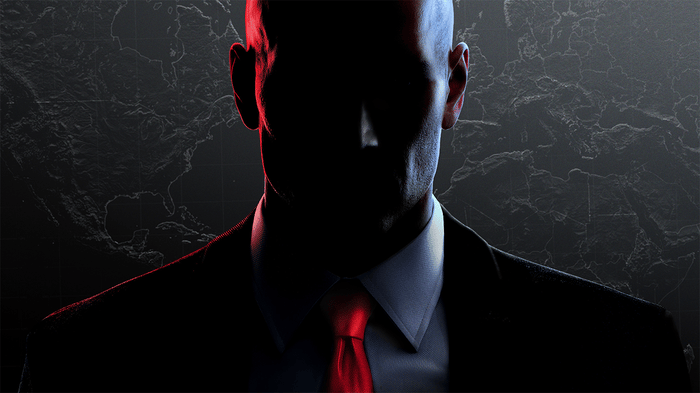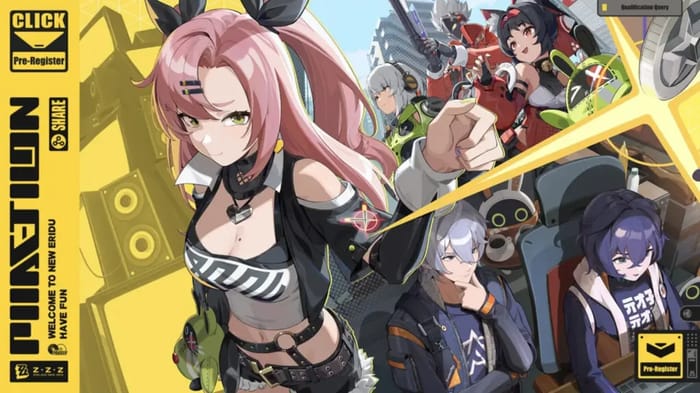The deep voice of Darkest Dungeon has some advice on hiring voice talent
"The concept of Darkest Dungeon grabbed me," says prolific voiceover artist Wayne June. He shares tips on hiring and working with voiceover talent.

A good voice actor can make you game's narrative and characters come alive with emotion and power. They can take chunks of text and turn them into a vivid story that will really stand out in the player's memory.
A bad voice actor can destroy all of your hard work on story and character development.
Wayne June falls very much in the former category. This prolific voice actor's deep, sonorous narration is as important to Darkest Dungeon's appeal as its characteristic visuals, its mental afflictions, and its vicious difficulty. The writing in Darkest Dungeon was extremely well done, but it was June's unique tone and delivery that gave the developer's words their dark power.
How do voiceover artists like Wayne June work? And how can you find such a person to work on your game? We decided to ask him how he works, and for any tips and insights he had for game devs looking to hire and work with voice actors.
WORKING WITH RED HOOK
Red Hook Studios, the creators of Darkest Dungeon, found June through a shared interest in the writer H. P. Lovecraft.
Chris Bourassa had been familiar with some previous work of mine, a series of audiobooks in the 'Weird Fiction' genre by Lovecraft," says June. "Since the concept for Darkest Dungeon has a rather Lovecraftian flavor, he thought I'd be a good fit."
"I love Gothic horror, grew up on monsters and scifi, so the concept of Darkest Dungeons grabbed me."
June was immediately impressed by Darkest Dungeon. "I love Gothic horror, grew up on monsters and Sci-Fi, so the concept grabbed me," he says. "The scriptwriting was nothing short of stupendous, I had a preview glimpse of the concept art and found that inspiring. "
He had done voice work on audio books, TV documentaries and promos... Go see his website to get a sense of the full range. But this was his first game project. He recorded himself in his own home studio, and shared cleaned-up versions of the audio files with the developer.
Red Hook hit the jackpot with June. What can other game developers do to help ensure an equally positive experience? How do you look into finding someone whose vocal talents enriches your work like June's did for Darkest Dungeon? How do you get them interested in working with your game, and what do they need to come aboard? How do you guide them to get the words just right?
KNOW EXACTLY WHAT YOU WANT
When searching for a professional voice actor, it helps to have a very good idea of what you have in mind for your game.
Do you want someone with a cute voice, or someone who can make the dread halls come alive with malice? Knowing exactly what you want can not only guide you to find the right voice actor, but gives you an idea on what to suggest while giving directions to the person you eventually hire.
Wayne June's rendition of Poe's "The City in The Sea"
CAST YOUR NETS WIDE, BUT LOOK FOR EXPERIENCE
You could very well have already heard someone who's a perfect fit for your game in some other medium besides games. A good voice actor for your video game might not necessarily have worked in games before, as many of them do all kinds of different work.
The voice business is extremely wide-ranging," says June. "Here's a list of just some of the areas using highly specialized voice talent: Animation, Cartoons, Videogames, Audiobooks, Corporate Training Videos, Dubbing, eLearning, Webinars, Tutorials, Documentary Films…"
"Hire experience. There's a difference between, 'Yeah, I could do that' and 'Yes, I've done that.'"
June says that there are quality voice actors in all manner of different places, but he cautions developers to look for experience: "There are those among us whose range covers several of these areas, I work regularly in over a dozen of them, but no one person is likely to be appropriate for it all; the demands of the industry are just too far flung.
"There's a difference between, 'Yeah, I could do that' and 'Yes, I've done that,'" he insists. "Hire experience. Also, it may be helpful to get referrals from someone in your industry."
BE WARY OF BARGAINS
"You get what you pay for," warns June.
"As in every other industry, rapidly changing technology has changed everything," he says. "The availability of affordable recording devices has flooded the market with those wielding minimal experience and skill. You're going to come across sites that look great with '$49 voice productions' and 'freelancers' offering 'five dollar voiceovers'. Really? Good luck with that nightmare."
EXPECT PROFESSIONALISM. PROJECT PROFESSIONALISM.
You may be looking for quality talent to hire, but a voice actor is also sizing you up as their prospective employer.
"A major factor in the appeal of any prospective job is the perceived level of professionalism," says June. "In business, you want someone competent, serious, committed -- prepared, with clear objectives and a plan as to how to accomplish them."
A professional actor is going to want assurances that you have the skills necessary to pull off the game you have in mind, and that their time isn't going to be wasted on a project that may go nowhere. June says one of the things that drew him to Darkest Dungeon was a sense that Red Hook knew what they wanted and what they were doing: "Everything was extremely organized; very well planned and executed."
Final release trailer of Darkest Dungeon
LISTEN CAREFULLY BEFORE YOU HIRE
When a voice actor seems interested in the position you're offering, it's up to you to determine if they're right for your project as well.
"Ask for demos, ask for a custom audition, ask for recording studio specs," advises June. "Listen closely to the responses and before making a decision, be convinced that during the interview and audition process, your prospective subcontractor has been listening to you!"
It is up to the developer to determine if the voice actor is right for your project, and no matter how much experience or talent they might have, the only way you'll know for sure that they'll work out is if you listen to them yourself. Getting samples of them reading the work you've sent can solidify whether they're right for your project. (Ask for brief samples--don't expect them to record hours of material to simply aid you in your hiring decisions.)
EVALUATE A VOICE ACTOR (AND THEIR EQUIPMENT) FOR THE JOB
It can help to ask what kind of equipment a voice actor intends to use on your project as well.
Professional-grade equipment can help make for better recordings with fewer issues. June himself maintains an impressive setup. "I have a recording studio in my home with an acoustically treated booth (to deal with reflections of frequencies from hard surfaces) and use a program called Pro-Tools to record on a custom built computer maximized for audio production," he says. "I have a collection of microphones on hand from which to choose for any given project, including large-diaphragm condensers with multiple polar patterns and a supercardioid shotgun interference mic."

June continues, "I have a selection of plug-ins (software components that add options for manipulating dynamics, equalization, employing noise reduction, or adding effects such as reverb, delay, mic modeling, etc.) and I maintain a constantly growing library of sound effects and production music for sound design."
June was able to streamline the production process by editing the material before submitting it. "In the case of Darkest Dungeon, my editing included cleaning up mistakes and noises, evening out the dynamics and maintaining an overall consistent signal level," he says.
Equipment will not make an unprofessional actor suddenly work well, but a solid voice actor with high-quality equipment can help a developer get cleaner audio to work with for the end product.
PROVIDING MATERIAL TO VOICE ACTORS
Once you've made the hire, what all should you provide to the voice actor--just the lines you want them to read, or all of the surrounding context?
"I'm of the opinion a full script is best." says June.
A full script shows that you have the entire story down, which not only shows a serious commitment from you as the developer, but also helps the voice actor get a feel for the project as a whole. If you come in with snippets and undeveloped concepts, you also run the risk of looking unprofessional.
That's not to say that you cannot involve a voice actor in an early stage of the project. You can treat the voice actor like a consultant on the project to help guide you in nailing down your narrative style... but there will be a cost.
"If you're looking for the help of a voice actor in concept development, you'll be requiring more of a time investment, says June. "For example, if you're submitting multiple scripts before settling on a clear concept and finished script, for example, you can expect to pay for that."
The text of dialogue and narration isn't the only thing that can give voiceover artists a better sense of your game. "Reference audio, notes, story boards,spreadsheets are all effective," says June.
COORDINATING THE RECORDING PROCESS
Once a project is accepted, it's up to the developer to determine how closely they need to be involved in the recording process. Developers should determine if they wish to direct the voice actor live during recording or provide notes and feedback after the recording.
"A session can be set up to have a client physically present to act as director," says June. "Another option is to set up a 'phone patch' into the session so that the session can be monitored and direction provided. This can also be done by Skype, Google Hang-Out or with an ISDN connection or software such as Source-Connect."
Naturally, a more hands-on approach may effect the price. "A less expensive and often preferred arrangement is to establish understanding pre-production, and have the actual session self-directed by the voice actor," says June.
Detailed notes in the script can help the voice actor get a sense of what emotion or effect is required for a scene. It will also help the voice actor keep the emotion in mind when they go to work, which is nice given how much work it still takes with all of that direction in place.
FEEDBACK PROCESS
"I record the scripts, usually giving three to five different 'takes' of a given line to provide choices," says June. "It took multiple takes to narrow the choices down to the three to five that I sent. Plus, all initial recordings include unintentional and unwanted elements, like tripping over words, stomach grumbles, even passing planes and neighborhood dogs... my acoustic treatment is sound absorbing, not sound blocking! It can take many hours to get one hour of finished audio, depending on a particular day's challenges."
It takes a great deal of effort to provide lines even with direction, so a developer keeping careful notes on what they want in a given scene is key. Being able to communicate that with notes may not be possible given the way some developers wishes to work, but in the interest of cost, it can be worthwhile to learn to direct using notes. Barring that, find some other way to help the voice actor see the world and characters as you see them, using storyboards, references, or any other means that works for the both of you. Anything you can do to help them get the words right makes their job easier, and will help you get the quality acting you need.
"A solid concept, proper casting, and effective communication will smooth the process," says June. "Know what you want to hear, choose someone you trust and have reason to believe has the ability to provide that, and use any and all means to get across your ideas."
If done well, your words will resonate in the player's ears long after the game is over.
About the Author(s)
You May Also Like








.jpeg?width=700&auto=webp&quality=80&disable=upscale)








